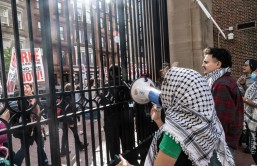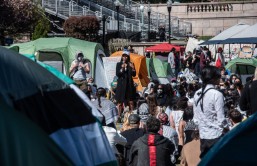Cristina Velez lost her job operating the recruitment and retention team at a COVID-19 treatment trial in early September. Velez began to call her landlord, Progress Residential, in the face of a $2,440 lease payment on the Boca Raton, Fla., household she resides with her daughter, to inquire if it would give her more time to raise the money.
"I told them I was affected by Covid, but it didn't matter to them," Velez stated in a comment. "They are not very patient."
A Palm Beach County criminal complaint shows that on September 8, Progress ended up giving her an ultimatum, to cover the mortgage or produce the premises. Progress filed eviction proceedings against Velez just over two weeks later, demanding rent and legal fees of $4,210.14 and delivering the papers to her door.
Velez claimed not even once did Progress authorities informed her about a national eviction moratorium issued by the federal government to allow COVID-19-hurt renters to remain in their residences if their mortgage could not be paid.
The moratorium, issued on September 4 by the Centers for Disease Control and Prevention (CDC), forbids property owners from evicting tenants who claim they have also been affected by non-payment of rent by the pandemic.
READ: Indian Government Has Another Serious Crisis to Solve; The Rampant Child Trafficking in the Country
Court records reveal that between early September to October 17, given the CDC eviction prohibition, nearly 10,000 eviction cases were filed in 23 areas in Florida, Arizona, Georgia, Texas, and Tennessee by major corporate landowners, such as the one that holds Velez's home.
For instance, nearly 2,000 cases were reported in the five states in the week of October 12, about twice the number in the preceding week.
The evacuations are one of the reports collected by the non-profit Private Equity Stakeholder Project, which explores the effect on populations of private equity. After the pandemic struck, it started collecting eviction figures, though it is not clear how many evictions are connected to the coronavirus.
Velez's expulsion case is one of Progress Residential's 97 lawsuits filed against renters since the CDC declared its prohibition. Progress, a prominent and very well funded developer, holds 40,000 single-family homes nationally and rents them. It is owned by a $3 billion investment firm, Pretium Partners, which invests in foreclosed properties.
ALSO READ: New Progress on an Unsolved Murder Case in New Jersey, According To Report
A Progress spokesperson refused to comment on the records in the eviction filing regarding its relations with Velez.
"Progress Residential continually engages with tenants on matters related to their leases. While each matter is unique, we are committed to working with tenants, as appropriate, to try and provide assistance during these extraordinary times," the spokesperson stated in a comment.
A CDC spokesperson had not responded to requests for a statement on the previous ban and its subsequent amendments.
Although the CDC prohibition focuses on tenants that have been harmed due to COVID-19, it does not prevent, however, evictions for other purposes, such as those associated with risks to health and safety by other tenants, damage to property, or even criminal activity.
READ MORE: In a Battle for Superiority Between China and US, Taiwan is Caught in the Crossfire








